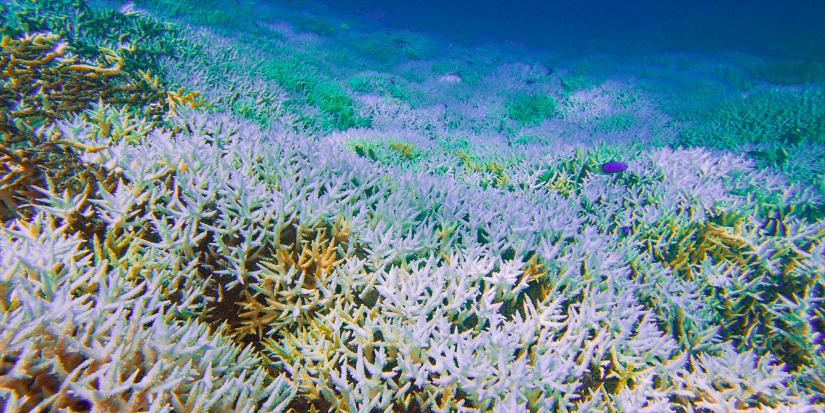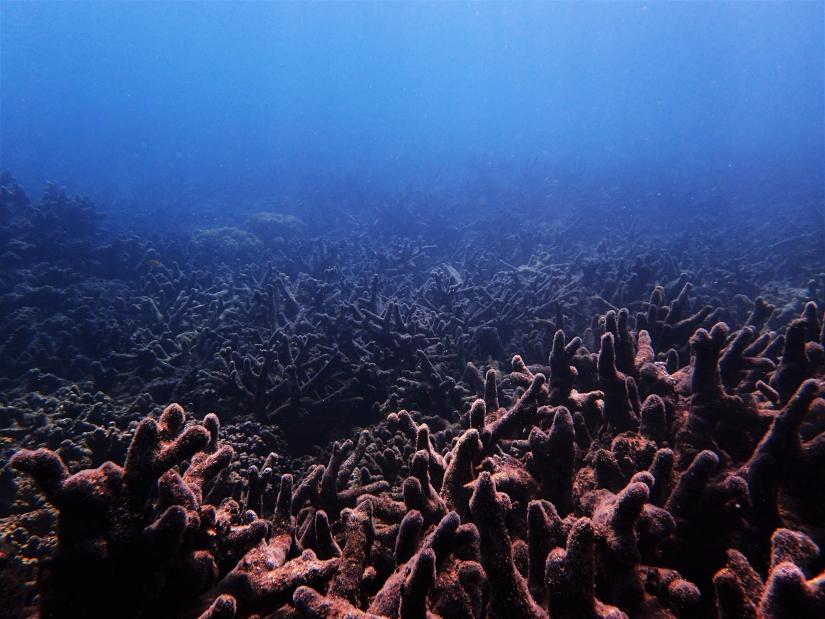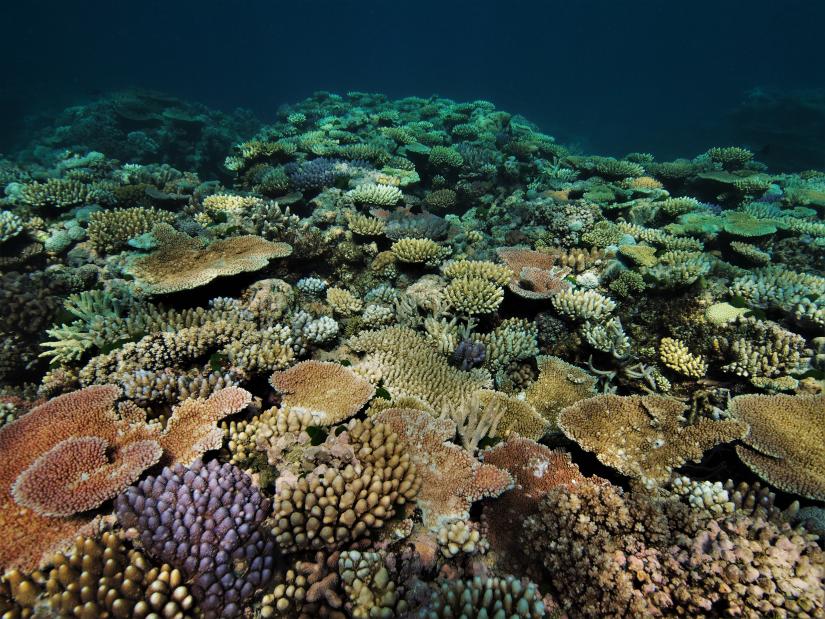
The grim outlook for the world’s coral reefs continues with a new study showing that marine heatwaves are a much bigger threat to coral reefs than previously thought. The research reveals a previously unrecognized impact of climate change on coral reefs.
In the study, scientists show for the first time what really happens to corals during marine heatwaves, revealing that it’s not only coral animals that are affected – their skeletons start to decay within weeks, too. This means that the 3D coral framework which provides home to many other animals on the reef is also at risk.
What are the main findings?
The study by a team of researchers from UNSW Sydney, The University of Newcastle, The University of Technology Sydney, James Cook University and The National Oceanographic and Atmospheric Administration (NOAA), USA was published in the journal Current Biology.
In 2016 the team’s research showed that just a 0.5OC increase in ocean temperature changes the extent of mortality that happens in coral during bleaching.
In this study, the team now find that severe marine heatwaves not only trigger bleaching events as we have known them – a breakdown of symbiosis – but in fact can lead to heat-induced mortality of the coral animal itself. They suggest that severe heatwave-induced mortality events should therefore be considered a distinct biological phenomenon, with more direct damage different from coral bleaching.
“Until now, we have described coral bleaching as an event where the symbiotic relationship between coral and its microbes breaks down and corals lose their main source of nutrition, and the coral can die if the symbiosis is not restored,” author Associate Professor Tracy Ainsworth from UNSW says.
“But what we are now seeing is that severe marine heatwave events can have a far more severe impact than coral bleaching: the water temperatures are so warm that the coral animal doesn’t bleach – in terms of a loss of its symbiosis – the animal dies and its underlying skeleton is all that remains.”

What novel techniques were used?
UTS Climate Change Cluster scientists A/Professor David Suggett and Dr Emma Camp used novel bio-optical techniques that allowed them to visualise and study the rapid transition in the coral microbiome for the first time.
“With this technique, we can see cyanobacteria go from symbionts to harmful coral skeleton-dissolvers. Adopting these techniques more broadly will be central to understanding how this process occurs on reefs globally – we anticipate that heatwave mortality events, and rapid reef decay, will become more frequent as the intensity of marine heatwaves increase."
A/Professor Suggett said the use of such novel sensors builds on more than 20 years of developing tools to assess coral health.
“For obvious reasons we’ve focussed on coral symbiont health but now we are using sensors to target the microbes that live below the coral tissues in the surface of the skeleton. We were able to show that during bleaching where the symbionts die, or are expelled, these other microbes can ‘bloom’. Their very different metabolism makes them dissolve the surrounding skeleton,” he says.
Associate Professor Bill Leggat of the University of Newcastle, a co-author on the paper says that the skeleton is immediately overgrown by rapid growth of algae and bacteria
“We were able to study the consequences of this process of rapid colonisation using CT scanning of the coral skeleton – as would be used in medical imaging. We show that this process is devastating not just for the animal tissue, but also for the skeleton that is left behind, which is rapidly eroded and weakened.”

Future of coral reefs
A/Prof Ainsworth says that the team hopes this research will motivate the public to tell decision makers how important coral reefs are to them, and voice the immediate need to preserve coral reefs now.
“Across the globe coral reefs are still a source of inspiration and awe of the natural world, as well as being critically important to the communities that rely upon them. Given that the degradation of coral reefs will result in the collapse of ecosystem services that sustain over half a billion people, we urgently need actions both globally and locally that protect and conserve these truly wonderful places.”
This research was funded by Australian Research Council, Great Barrier Reef Foundation (Coral Health Grant), NOAA NESDIS and the NOAA Coral Reef Conservation Program.

